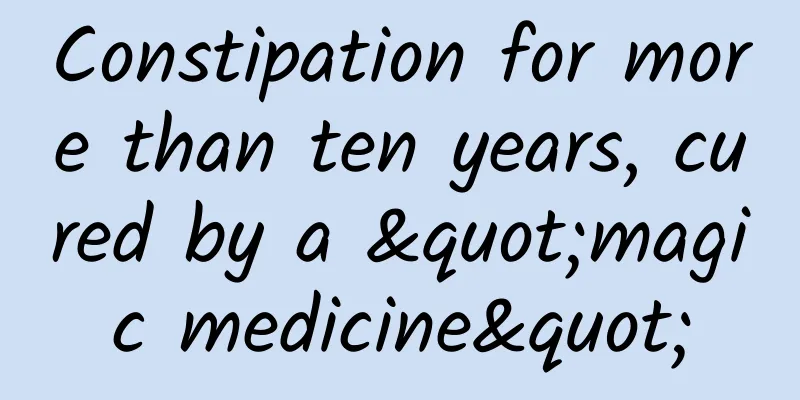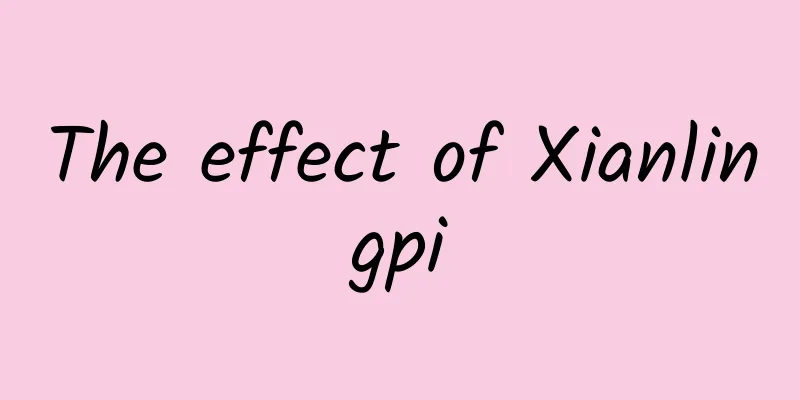Constipation for more than ten years, cured by a "magic medicine"

|
A 33-year-old woman had been suffering from constipation for more than ten years, with a bowel movement about once every 5 to 9 days. She took probiotics, senna leaves, rhubarb and many commercially available laxative Chinese medicines, but her condition fluctuated and she was miserable. When constipation worsens, the stool will be dry and hard like sheep dung once every 10 days or so, and it takes more than half an hour to defecate each time. The tongue is red with little moisture, especially dry on both sides, and the pulse is stringy and thin. Under the guidance of a Chinese medicine practitioner, after taking a Chinese medicine for 5 days, my bowel movements became smooth and my stools were no longer dry. I reduced the dosage for another 10 days and my condition returned to normal. This magical Chinese medicine is Cassia seed! Cassia seed tastes sweet, bitter and salty, is slightly cold in nature, and enters the liver and large intestine meridians. It has the functions of clearing away heat, improving eyesight, and moistening the intestines and promoting bowel movements. It is often used to treat red, swollen and painful eyes, photophobia and excessive tearing, blurred vision; headache, dizziness, dry intestines and constipation. Mr. Ye Juquan, a famous Chinese medicine scientist, highly praises Cassia seed. He believes that Cassia seed is better than coffee as a tea and is very effective in treating habitual constipation. Cassia seeds need to be fried before drinking water. Specific usage: Take 500 grams of Cassia seed, fry until slightly yellow, grind, and store in a dry bottle. Take 10-15 grams each time. Add appropriate amount of honey or brown sugar according to personal taste. Soak in boiling water for 15-20 minutes. Take it instead of tea for four or five days. The stool can be discharged smoothly. After that, take it in small doses for about ten days to consolidate the therapeutic effect. Combining the research results of modern doctors and modern pharmacology, the Chinese medicine Cassia seed can not only relieve constipation, but also has the following effects: Helps lower blood pressure Cassia seed contains "cassiaein", "chrysophanols" and "rhubarb-like" ingredients, which can lower blood pressure and blood lipids. Drinking tea has a good health-care effect for patients with hypertension, high blood lipids and constipation. Helps lower blood lipids A large number of scientific research literature studies have shown that Cassia seed has a good lipid-lowering effect. Patients with dyslipidemia may try making tea with Cassia seeds. People with high blood lipids can make tea with fried Cassia seeds under the guidance of a Chinese medicine practitioner. However, it is not recommended for patients with hyperlipidemia to stop taking the medication, and lipid lowering requires exercise. Improve eyesight and help sleep Cassia seed is an important medicine for treating eye diseases in traditional Chinese ophthalmology. It is suitable for symptoms such as red and painful eyes, photophobia and excessive tearing caused by liver heat or wind-heat in the liver meridian. It can be decocted and taken alone, or used together with self-cultivated herb, mulberry leaves, chrysanthemum, etc. The medicinal pillow made of cassia seed and chrysanthemum has the effects of clearing heat and calming the mind, improving eyesight and aiding sleep. It should be noted that since Cassia seed is slightly cold in nature, people with diarrhea or weak spleen and stomach should not take it for a long time. In addition, Chinese medicine also emphasizes stopping the use of medication after the effect is achieved, which is the so-called "stop treatment when the disease is cured", so long-term and large-dose use is not recommended. Depending on the condition and personal constitution, the usage time and dosage of Cassia seed should be determined by a doctor and should not be taken on your own. |
>>: A thing that every rural household has can actually cure many diseases
Recommend
Click here to review your 2021! What major events have you witnessed?
Mixed Knowledge Specially designed to cure confus...
The efficacy and function of flat fruit
In today's society, health preservation seems...
The efficacy and function of chestnut
Many people know that chestnut pod has unique the...
DataDial: Psychological Tactics to Boost E-Commerce Sales (Infographic)
199IT original compilation E-commerce brands stri...
What should we do to prevent the “Lost Gull” from being lost again?
A flash by the Ruoshui River In 1931, the Swedish...
Wunderkind: The power of identity resolution
In today’s increasingly digital shopping environm...
The efficacy and function of Suxinghua
As the pressure of modern life increases, more an...
The Chang'an in the movie "30,000 Miles of Chang'an" is not the Xi'an today!
The recently released animated film "30,000 ...
Sneezing in the light is caused by brain dysfunction
I wonder if you have such a friend around you. Or...
I have something stuck in my teeth again. What should I use to get the leaf out?
Although dentists have always regarded brushing t...
The efficacy and function of southern viburnum
We can often see southern viburnum in daily life,...
The efficacy and function of the traditional Chinese medicine persimmon pedicle
Many of our common food ingredients actually cont...
Baked purple potatoes explode! Do you know the "explosive temper" of these electrical appliances?
Audit expert: Luo Huiqian Associate Researcher, I...
The efficacy and function of Carex leucoderma
The efficacy and function of the traditional Chin...









